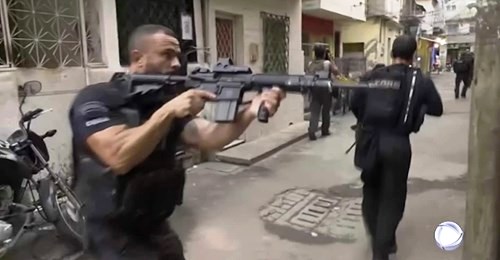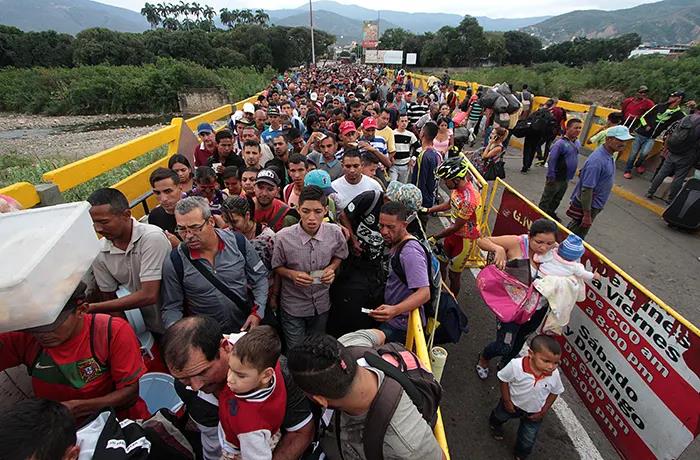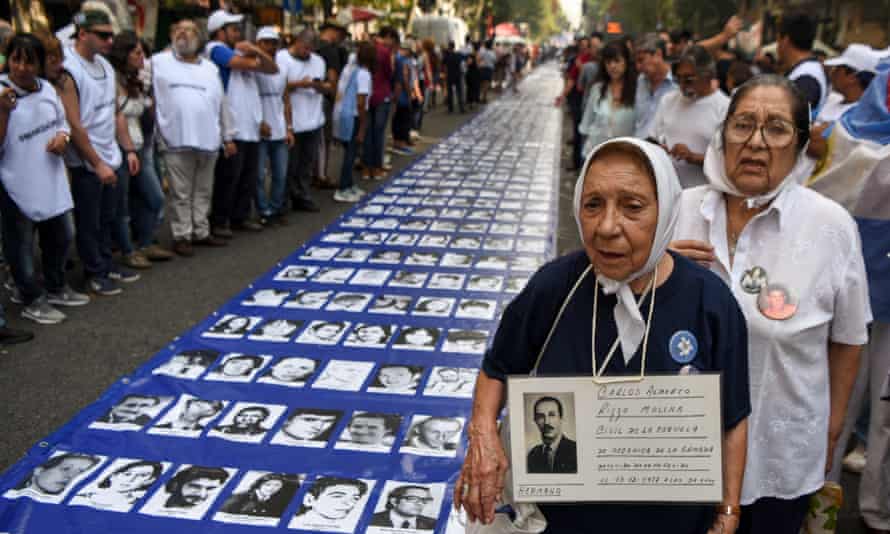HIGHLIGHTS
This month, we update you on developments in Colombia, Brazil, Peru, Venezuela, Argentina, Chile and Ecuador. Amnesty has issued a report, several statements and an Urgent Action in response to the human rights violations committed during the current National Strike and protests in Colombia. We report further indiscriminate shootings by police in Brazil and continuing attacks on indigenous communities. Amnesty has launched a new campaign calling on the Government of Peru to protect indigenous communities at risk from toxic metal contamination. In Venezuela, thousands have fled to Colombia to escape intense clashes between the Venezuelan army and Colombian rebel groups, while there has also been an increase in repression of Human Rights Defenders.
COLOMBIA

As the National Strike moves into its second month, the UN High Commissioner for Human Rights calls for an end to all forms of violence. In only the last three days, 14 people have died, and 98 people have been injured, 54 of them by firearms during violence that erupted in Cali where demonstrations were taking place to commemorate a month of the strike.
On 29 May, President Duque ordered the militarisation of part of the country in response to ongoing anti-government protests and popular uprisings. This increased military control over seven departments. The president also ordered the “maximum deployment of military assistance for the National Police” in Cali and 12 other cities.
Amnesty International’s Secretary General has written an open letter to President Duque, cataloguing human rights abuses committed by the security forces using excessive force against mainly peaceful demonstrators during the National Strike. Amnesty denounces the use of inflammatory language and stigmatising social protest from political leaders and public officials. Amnesty calls on the authorities to ‘Prosecute, and punish all those responsible for human rights violations, including members of the security forces and armed civilians’ groups in fair trials before ordinary civilian courts.’
Amnesty has issued an Urgent Action calling on President Duque to end the violent response of the security forces to protestors, who are calling for better social and economic measures.
Amnesty is calling on the United States to ‘immediately cease the direct or indirect supply, sale, or transfer of equipment used for repression such as small arms, shotguns, and related ammunition; less-lethal equipment, such as tear gas, riot control projectiles and launchers; armoured vehicles, dual-use surveillance technologies, training, and any other technical or financial assistance.’ This is in light of verified visual evidence that United States weapons and equipment are being misused to commit human rights violations against protesters in Colombia
Amnesty has issued a report, Colombia: Concerning reports of disappearances and sexual violence against protesters, including a video showing how the security forces used excessive force against protesters during the early stages of the National Strike.
In another statement, Amnesty has focussed on the violence against indigenous peoples. ‘The attacks by armed civilians, some in the presence of the police, against the Indigenous Minga (gathering) in Cali are a reflection of the ceaseless dynamics of violence in Colombia that have been accentuated during the social protests related to the National Strike.’ Several members of the Regional Indigenous Council of Cauca (CRIC) were injured.
According to The Internal Displacement Monitoring Centre, 106,000 Colombians were forcibly displaced in 2020 despite spending most of last year in Covid-19 lockdown. The Colombian NGO Programa Somos Defensores reports that killings of human rights defenders increased from 124 in 2019 to 199 in 2020, an increase of 60%. We will be analysing who were the targets and who were the perpetrators and why in next month’s newsletter.
BRAZIL

In spite of a court order not to enter favelas, the police killed 28 people in the Jacarezinho favela 7 May in an operation directed at drug gangs. The Guardian reports on first-hand accounts of extrajudicial killings by the police. ‘President Bolsonaro, a vocal supporter of police repression who has called for criminals to be shot “like cockroaches”, congratulated security forces for the raid and rebuffed growing outrage over the bloodshed.’
Amnesty International has released a public statement calling on the Rio de Janeiro state prosecutor’s office to ‘conduct a prompt, exhaustive, independent, and effective investigation into these atrocities [in Jazarezinho favela], following international standards so that the agents of the state who ordered, committed or participated in this massacre are held accountable and face justice.’
Folha de S. Paolo reports on another attack on Palimiú Yanomami community by gold poachers using tear gas and firearms on 16 May. ‘There was a lot of smoke and an explosion. They called me at night, I even heard the shooting, they fired again. There were 15 to 18 boats, said the president of the Yanomami and Ye’kwana Indigenous Health Council, Junior Hekurari Yanomami. Two Yanomani children drowned while trying to escape the violence. There is no police protection for the community.
From Brazil Matters#: The Association of Brazil’s Indigenous Peoples and the Coordination of Indigenous Organizations in the Brazilian Amazon denounce a serious offensive underway 26 May against Indigenous leaders of the Munduruku Indigenous Territory. Illegal gold miners operating in the region are attacking with gunshots and burning houses in retaliation for a Federal Police operation in the region.
PERU
Amnesty have launched a new report and campaign to protect thousands of Peruvian indigenous families at risk from toxic metals. Desk and field research carried out in eleven Indigenous communities in Espinar Province, in the southern highlands of Peru, revealed dangerous levels of metals and toxic substances in the bodies of study participants. Amnesty is calling on the Peruvian Government to address the situation as an emergency. Please support Amnesty’s campaign by signing the petition here.
VENEZUELA

According to the BBC, thousands of Venezuelans have fled to Colombia seeking refuge from intense clashes between Venezuela’s army and Colombia’s rebel groups. Refugees have been forced out of their homes by the military and describe human rights abuses, disappearances and home break-ins.
The Centro para los Defensores y la Justicia recorded 115 attacks and security incidents against Human Rights Defenders during April, a 100% increase over the previous month. This reflects a continued tightening of restrictions on civic and democratic activity space in the context of the humanitarian crisis in Venezuela. Read the report here
According to VOA, the Venezuelan government filed a request for Spain to return Leopoldo López to complete the remaining eight years of a 14-year prison sentence for instigating violence in anti-government protests and other crimes. Spain has so far refused to give any indication as to how it will respond to the request.
ARGENTINA
 Argentina has started an international campaign to find the babies born in captivity and taken away from their biological families during the last dictatorship that took place from 1976 to 1983. Argentinian Embassies around the world are receiving DNA test kits to take blood samples from those who have doubts about their identity and have reason to believe that they were illegally adopted between those years. You can read more about it here.
Argentina has started an international campaign to find the babies born in captivity and taken away from their biological families during the last dictatorship that took place from 1976 to 1983. Argentinian Embassies around the world are receiving DNA test kits to take blood samples from those who have doubts about their identity and have reason to believe that they were illegally adopted between those years. You can read more about it here.
COVID-19 cases have risen surprisingly in Argentina, leading the country to a 9-day phase 1 lockdown while the vaccination roll-out speeds up. Argentine has begun to produce the Sputnik-Vida vaccine, which is the locally produced version of the Sputnik V Vaccine.
CHILE
Our Country Coordinator for Argentina and Chile, Carla Torres, hosted the event Chile in Focus, organized by the Stamford and Rutland Group. This was part of Amnesty International’s Festival of Social Justice. The event featured a play, “Widows” by Ariel Dorfman, reflecting on State violence during the Pinochet era. This was followed by a Q&A session about the current unrest in Chile and Amnesty’s ‘Eyes on Chile’ report. Among the panellists were Chile Solidarity Network founder Carole Concha Bell and Amnesty member Jorge Diaz-Munoz. You can watch it online here.
ECUADOR
Human Rights Watch have called on newly elected President Guillermo Lasso, who took office on 24 May, and the Ecuadorean National Assembly to prioritise the implementation of Constitutional Court rulings that advance human rights protections. Outgoing President Lenín Moreno led a process that sought to restore the independence of key institutions, including the Constitutional Court. A transitional Council of Citizen Participation appointed nine new, well-respected jurists to the Constitutional Court in 2019. The court has issued multiple rulings since then that protect the rights of women and girls; prisoners; refugees and migrants; and LGBTI people, and address critical human rights matters like freedom of expression and use of force.
All the best,
South America Team – Richard Crosfield (Colombia and Brazil), Carla Torres (Chile and Argentina), Javiera Martinez (Venezuela) and Graham Minter (rest of South America).